© Copyright: 2021 – 2024 IAS – the International AIDS Society
Email: [email protected]
Angela Ciuffi, Switzerland
University of Lausanne
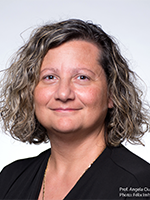 Angela Ciuffi is an Associate Professor at the Institute of Microbiology of the Lausanne University Hospital (CHUV) and the University of Lausanne (UNIL) in Switzerland. She is also the vice-director of the School of Biology in the Faculty of Biology and Medicine at UNIL. Her research focuses on HIV-host interactions in the context of HIV replication, integration, latency and innate immunity. Her current work uses cutting-edge approaches and technologies, including epitranscriptomic and single-cell analyses, to further characterize the HIV-host cell interplay, capture the cell heterogeneity in response to HIV infection and identify cellular signatures associated with specific HIV-related phenotypes.
Angela Ciuffi is an Associate Professor at the Institute of Microbiology of the Lausanne University Hospital (CHUV) and the University of Lausanne (UNIL) in Switzerland. She is also the vice-director of the School of Biology in the Faculty of Biology and Medicine at UNIL. Her research focuses on HIV-host interactions in the context of HIV replication, integration, latency and innate immunity. Her current work uses cutting-edge approaches and technologies, including epitranscriptomic and single-cell analyses, to further characterize the HIV-host cell interplay, capture the cell heterogeneity in response to HIV infection and identify cellular signatures associated with specific HIV-related phenotypes.
Keith Reeves, United States
Harvard University
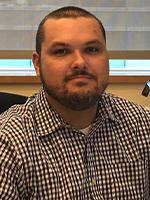 Dr R Keith Reeves is incoming Director of the Division of Innate and Comparative Immunology of the Center for Human Systems Immunology at Duke University. Dr Reeves did his PhD at the University of Alabama-Birmingham and was a postdoctoral fellow and faculty at Harvard Medical School. He has extensively studied NK cells and innate lymphoid cells in HIV and SIV infections, including the first characterization of memory NK cells in any primate species. His current research focuses on the role of NK cells in viral pathogenesis and immunological ageing, as well as harnessing NK cells for vaccines and antiviral therapeutics.
Dr R Keith Reeves is incoming Director of the Division of Innate and Comparative Immunology of the Center for Human Systems Immunology at Duke University. Dr Reeves did his PhD at the University of Alabama-Birmingham and was a postdoctoral fellow and faculty at Harvard Medical School. He has extensively studied NK cells and innate lymphoid cells in HIV and SIV infections, including the first characterization of memory NK cells in any primate species. His current research focuses on the role of NK cells in viral pathogenesis and immunological ageing, as well as harnessing NK cells for vaccines and antiviral therapeutics.
Lishomwa (Lish) Ndhlovu, United States
Weill Cornell Medicine
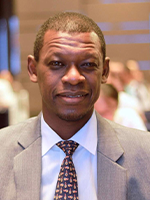 Lishomwa Ndhlovu, MD, PhD, is Professor and Director of the HIV Immunopathogenesis Lab in the Division of Infectious Diseases at Weill Cornell Medicine. After completing medical training, his scientific career began at Tohoku University in Japan where he received his PhD and pursued postdoctoral training at the University of California, San Francisco. His research programme is confronting the challenges of HIV and ageing and is developing specific strategies to prevent, slow or eliminate complications associated with HIV with an emphasis on the brain. He is a member of the International Neuro-HIV Cure Consortium and Co-Editor in Chief of the journal, AIDS Research and Human Retroviruses.
Lishomwa Ndhlovu, MD, PhD, is Professor and Director of the HIV Immunopathogenesis Lab in the Division of Infectious Diseases at Weill Cornell Medicine. After completing medical training, his scientific career began at Tohoku University in Japan where he received his PhD and pursued postdoctoral training at the University of California, San Francisco. His research programme is confronting the challenges of HIV and ageing and is developing specific strategies to prevent, slow or eliminate complications associated with HIV with an emphasis on the brain. He is a member of the International Neuro-HIV Cure Consortium and Co-Editor in Chief of the journal, AIDS Research and Human Retroviruses.
Penny Moore, South Africa
National Institute for Communicable Diseases (NICD)
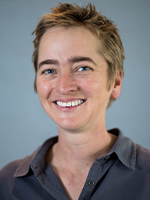 Penny Moore is the South African Research Chair of Virus-Host Dynamics and Reader and Associate Professor at the University of the Witwatersrand, South Africa. She holds a joint appointment as Honorary Senior Scientist in Virus-Host Dynamics at the Centre for the AIDS Programme of Research in South Africa (CAPRISA), University of KwaZulu-Natal, and Adjunct Member at the Institute of Infectious Disease and Molecular Medicine, University of Cape Town. She co-directs a team of more than 15 scientists and 10 graduate students who work in the field of HIV vaccine discovery, combining virology and immunology. More recently, her group also started working on SARS-CoV-2, performing serology, neutralization and Fc effector assays.
Penny Moore is the South African Research Chair of Virus-Host Dynamics and Reader and Associate Professor at the University of the Witwatersrand, South Africa. She holds a joint appointment as Honorary Senior Scientist in Virus-Host Dynamics at the Centre for the AIDS Programme of Research in South Africa (CAPRISA), University of KwaZulu-Natal, and Adjunct Member at the Institute of Infectious Disease and Molecular Medicine, University of Cape Town. She co-directs a team of more than 15 scientists and 10 graduate students who work in the field of HIV vaccine discovery, combining virology and immunology. More recently, her group also started working on SARS-CoV-2, performing serology, neutralization and Fc effector assays.
Sarah Palmer, Australia
University of Sydney
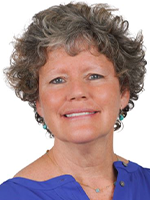 Professor Sarah Palmer is the Co-Director of the Centre for Virus Research at The Westmead Institute for Medical Research and Professor in the Faculty of Medicine and Health at the University of Sydney School of Medicine. Her research focuses on molecular and medical virology and the application of innovative techniques and assays, which provide new insights into disease pathogenesis and treatment for HIV and COVID-19. She received her PhD in medical sciences (virology) from the Karolinksa Institutet and conducted her postdoctoral studies at the Center for AIDS Research, Stanford University Medical School.
Professor Sarah Palmer is the Co-Director of the Centre for Virus Research at The Westmead Institute for Medical Research and Professor in the Faculty of Medicine and Health at the University of Sydney School of Medicine. Her research focuses on molecular and medical virology and the application of innovative techniques and assays, which provide new insights into disease pathogenesis and treatment for HIV and COVID-19. She received her PhD in medical sciences (virology) from the Karolinksa Institutet and conducted her postdoctoral studies at the Center for AIDS Research, Stanford University Medical School.
Shuzo Matsushita, Japan
Kumamoto University Hospital
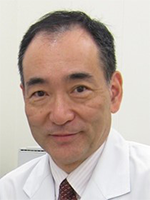 Professor Shuzo Matsushita is a physician-scientist who has been working on clinical and basic science of HIV-1 infection for over 36 years. He is the Director of the Joint Research Center for Human Retrovirus Infection, Kumamoto and Kagoshima Universities, Japan. He is an IAS Governing Council member, representing the Asia and the Pacific Islands region, and the President of the Japanese Society for AIDS Research. He was internationally recognized for his expertise in the field of neutralizing antibodies as early as 1988, including for his identification of the first neutralizing antibody, 0.5β, and its human-mouse chimeric counterpart, Cβ1, that protected chimpanzees from HIV-1 infection.
Professor Shuzo Matsushita is a physician-scientist who has been working on clinical and basic science of HIV-1 infection for over 36 years. He is the Director of the Joint Research Center for Human Retrovirus Infection, Kumamoto and Kagoshima Universities, Japan. He is an IAS Governing Council member, representing the Asia and the Pacific Islands region, and the President of the Japanese Society for AIDS Research. He was internationally recognized for his expertise in the field of neutralizing antibodies as early as 1988, including for his identification of the first neutralizing antibody, 0.5β, and its human-mouse chimeric counterpart, Cβ1, that protected chimpanzees from HIV-1 infection.
Zeger Debyser, Belgium
University of Leuven
Bio pending
Chien-Ching Hung, Taiwan
National Taiwan University
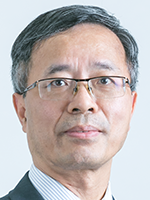 Chien-Ching Hung is an attending physician of the Division of Infectious Diseases at the National Taiwan University Hospital and Director and Professor of the Department of Tropical Medicine and Parasitology at the National Taiwan University College of Medicine, Taipei, Taiwan. His research interests include clinical management of HIV-related opportunistic infections, combination antiretroviral therapy, amoebiasis, sexually transmitted infections and viral hepatitis co-infections. Dr Hung is a member of the Taiwan Infectious Diseases Society and Taiwan AIDS Society. He is currently the President of the Taiwan AIDS Society and leads the Taiwan HIV Study Group.
Chien-Ching Hung is an attending physician of the Division of Infectious Diseases at the National Taiwan University Hospital and Director and Professor of the Department of Tropical Medicine and Parasitology at the National Taiwan University College of Medicine, Taipei, Taiwan. His research interests include clinical management of HIV-related opportunistic infections, combination antiretroviral therapy, amoebiasis, sexually transmitted infections and viral hepatitis co-infections. Dr Hung is a member of the Taiwan Infectious Diseases Society and Taiwan AIDS Society. He is currently the President of the Taiwan AIDS Society and leads the Taiwan HIV Study Group.
Claudia Cortes, Chile
University of Chile
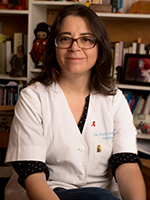 Dr Claudia Cortes is an internal medicine physician and infectious diseases specialist. Since 2005, she has been dedicated to HIV and AIDS in patient care and research. Currently, she is an Associate Professor at the University of Chile. She was a member and Chair of the HIV advisory committee of the Chilean Infectious Diseases Society (SOCHINF) and is now Vice President of SOCHINF. Dr Cortes is a consultant for the Chilean Ministry of Health, worked in the development and update of national clinical guidelines for HIV and AIDS management, and took part in several committees involving HIV prevention, testing and treatment strategies. She participates as investigator for the Caribbean, Central and South America network for HIV epidemiology (CCASAnet). In 2020, she was elected to the IAS Governing Council.
Dr Claudia Cortes is an internal medicine physician and infectious diseases specialist. Since 2005, she has been dedicated to HIV and AIDS in patient care and research. Currently, she is an Associate Professor at the University of Chile. She was a member and Chair of the HIV advisory committee of the Chilean Infectious Diseases Society (SOCHINF) and is now Vice President of SOCHINF. Dr Cortes is a consultant for the Chilean Ministry of Health, worked in the development and update of national clinical guidelines for HIV and AIDS management, and took part in several committees involving HIV prevention, testing and treatment strategies. She participates as investigator for the Caribbean, Central and South America network for HIV epidemiology (CCASAnet). In 2020, she was elected to the IAS Governing Council.
Kundai Chinyenze, Kenya
International AIDS Vaccine Initiative (IAVI)
 Kundai Chinyenze is a physician with almost 20 years of experience working in East and southern Africa in HIV and AIDS care and treatment and HIV prevention research. She serves in the International AIDS Vaccine Initiative (IAVI) as the Executive Medical Director, Clinical Development, leading the African regional team responsible for the design, implementation, analysis and reporting of clinical trials for candidate HIV vaccines and antibodies. Kundai’s research experience spans microbicides, HIV antibody and vaccine trials. Her goal is to contribute towards the development of affordable, effective HIV prevention tools for populations in need.
Kundai Chinyenze is a physician with almost 20 years of experience working in East and southern Africa in HIV and AIDS care and treatment and HIV prevention research. She serves in the International AIDS Vaccine Initiative (IAVI) as the Executive Medical Director, Clinical Development, leading the African regional team responsible for the design, implementation, analysis and reporting of clinical trials for candidate HIV vaccines and antibodies. Kundai’s research experience spans microbicides, HIV antibody and vaccine trials. Her goal is to contribute towards the development of affordable, effective HIV prevention tools for populations in need.
Miłosz Parczewski, Poland
Pomeranian Medical University
 Miłosz Parczewski, received his MD from the Pomeranian Medical University (PMU), Poland, in 2002 and PhD in molecular epidemiology in 2007. He specialized in infectious diseases in 2011 and is currently head and Associate Professor at the Department of Infectious, Tropical Diseases and Acquired Immunodeficiency at PMU. His research focuses on the molecular epidemiology in HIV infection and HCV co-infection: aspects of the genetic variability of the host with key interest in chemokine and interleukin receptor genes, HIV genetic variability, evolution of drug resistance and tropism, phylogeographic tracing of the viral transmission and recombination. He also investigates the association between genetic HIV-1 infection susceptibility and survival and variants of the host associated with drug adverse reactions. He is President of the Polish Scientific AIDS Society, a council member of the European Society on Antiviral Resistance, an editorial board member for the BMJ STI journal and the elected treasurer of EACS.
Miłosz Parczewski, received his MD from the Pomeranian Medical University (PMU), Poland, in 2002 and PhD in molecular epidemiology in 2007. He specialized in infectious diseases in 2011 and is currently head and Associate Professor at the Department of Infectious, Tropical Diseases and Acquired Immunodeficiency at PMU. His research focuses on the molecular epidemiology in HIV infection and HCV co-infection: aspects of the genetic variability of the host with key interest in chemokine and interleukin receptor genes, HIV genetic variability, evolution of drug resistance and tropism, phylogeographic tracing of the viral transmission and recombination. He also investigates the association between genetic HIV-1 infection susceptibility and survival and variants of the host associated with drug adverse reactions. He is President of the Polish Scientific AIDS Society, a council member of the European Society on Antiviral Resistance, an editorial board member for the BMJ STI journal and the elected treasurer of EACS.
Patrick (Paddy) Mallon, Ireland
University College Dublin
Bio pending
Thuy Le, USA
Duke University
 Dr Thuy Le is an Associate Professor of Medicine and Associate Professor of Molecular Genetics and Microbiology at Duke University School of Medicine and a Co-Director of the Clinical Core of the Duke Center for AIDS Research at Duke University Medical Center. She leads an international research programme spanning Vietnam, China and Myanmar to reduce HIV-related morbidity and mortality by developing novel diagnostics and treatment strategies for HIV-associated opportunistic infections. She led the multi-centre IVAP trial, demonstrating a mortality benefit of amphotericin B compared with itraconazole as induction therapy for HIV-associated talaromycosis, which has redefined international treatment recommendations. She currently leads an NIH-funded multi-centre study to evaluate a novel antigen detection assay for rapid detection of talaromycosis. She is a member of several leading committees, including WHO Guidelines Committees on Management of HIV and HIV-associated fungal infections.
Dr Thuy Le is an Associate Professor of Medicine and Associate Professor of Molecular Genetics and Microbiology at Duke University School of Medicine and a Co-Director of the Clinical Core of the Duke Center for AIDS Research at Duke University Medical Center. She leads an international research programme spanning Vietnam, China and Myanmar to reduce HIV-related morbidity and mortality by developing novel diagnostics and treatment strategies for HIV-associated opportunistic infections. She led the multi-centre IVAP trial, demonstrating a mortality benefit of amphotericin B compared with itraconazole as induction therapy for HIV-associated talaromycosis, which has redefined international treatment recommendations. She currently leads an NIH-funded multi-centre study to evaluate a novel antigen detection assay for rapid detection of talaromycosis. She is a member of several leading committees, including WHO Guidelines Committees on Management of HIV and HIV-associated fungal infections.
Vidya Mave, India
Johns Hopkins University
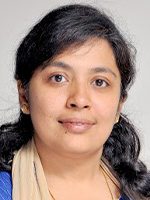 Dr Vidya Mave is Leader and Director of the Byramjee-Jeejeebhoy Government Medical College-Johns Hopkins University (BJGMC-JHU) Clinical Research Site, based in Pune, India. She is Associate Professor in the Division of Infectious Diseases of Johns Hopkins University School of Medicine. Dr Mave has nearly 18 years of experience in clinical practice, education and research in infectious diseases. Her research interests include HIV and co-morbid infections, such as TB, as well as co-morbidities (HIV, diabetes) and the use of novel tools (hair PK, whole genome sequencing, host biomarkers) to study TB treatment outcomes.
Dr Vidya Mave is Leader and Director of the Byramjee-Jeejeebhoy Government Medical College-Johns Hopkins University (BJGMC-JHU) Clinical Research Site, based in Pune, India. She is Associate Professor in the Division of Infectious Diseases of Johns Hopkins University School of Medicine. Dr Mave has nearly 18 years of experience in clinical practice, education and research in infectious diseases. Her research interests include HIV and co-morbid infections, such as TB, as well as co-morbidities (HIV, diabetes) and the use of novel tools (hair PK, whole genome sequencing, host biomarkers) to study TB treatment outcomes.
Andrew Mujugira, Uganda
Makerere University
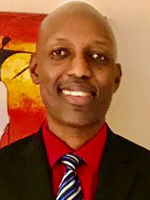 Andrew Mujugira, MBChB, MSc, MPH, PhD, MACE, is a Clinical Epidemiologist and Senior Research Scientist at the Infectious Diseases Institute, Makerere University, Uganda. He has 12 years of experience with oral pre-exposure prophylaxis (PrEP) efficacy trials, demonstration projects and implementation science and safety studies. His current research is funded by the National Institutes of Health and focuses on developing methods to build self-efficacy and empowerment, increase antiretroviral adherence and reduce sexual risk behaviours among key populations in Uganda through the use of evidence-based self-controlled HIV prevention tools (HIV self-testing, STI self-sampling, antiretroviral treatment and PrEP).
Andrew Mujugira, MBChB, MSc, MPH, PhD, MACE, is a Clinical Epidemiologist and Senior Research Scientist at the Infectious Diseases Institute, Makerere University, Uganda. He has 12 years of experience with oral pre-exposure prophylaxis (PrEP) efficacy trials, demonstration projects and implementation science and safety studies. His current research is funded by the National Institutes of Health and focuses on developing methods to build self-efficacy and empowerment, increase antiretroviral adherence and reduce sexual risk behaviours among key populations in Uganda through the use of evidence-based self-controlled HIV prevention tools (HIV self-testing, STI self-sampling, antiretroviral treatment and PrEP).
Ayden Scheim, USA
Drexel Dornsife School of Public Health
 Dr Ayden Scheim is an Assistant Professor in Epidemiology and Biostatistics at Drexel University in Philadelphia, USA, and holds adjunct appointments at Western University and St. Michael’s Hospital in Canada. He has over 15 years of experience conducting community-engaged research on HIV prevention, health and human rights among key populations. Currently, Dr Scheim leads transgender health studies in India, Canada and the USA, as well as a cohort study evaluating supervised consumption sites for people who inject drugs.
Dr Ayden Scheim is an Assistant Professor in Epidemiology and Biostatistics at Drexel University in Philadelphia, USA, and holds adjunct appointments at Western University and St. Michael’s Hospital in Canada. He has over 15 years of experience conducting community-engaged research on HIV prevention, health and human rights among key populations. Currently, Dr Scheim leads transgender health studies in India, Canada and the USA, as well as a cohort study evaluating supervised consumption sites for people who inject drugs.
Izukanji Sikazwe, Zambia
Centre for Infectious Disease Research in Zambia (CIDRZ)
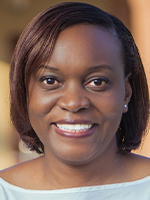 Dr Izukanji Sikazwe earned her medical degree from the University of Zambia and completed internal medicine specialty training at the Good Samaritan Hospital in Baltimore, Maryland, and infectious disease specialty training at the University of Maryland. Dr Sikazwe has worked for several years providing direct clinical care to people living with HIV and other infectious diseases in Zambia. She served as the technical advisor to the Zambian Ministry of Health National ART programme, from 2010 to 2012. In addition to her CEO role, she serves as the principal investigator of a CDC-funded HIV care and treatment award.
Dr Izukanji Sikazwe earned her medical degree from the University of Zambia and completed internal medicine specialty training at the Good Samaritan Hospital in Baltimore, Maryland, and infectious disease specialty training at the University of Maryland. Dr Sikazwe has worked for several years providing direct clinical care to people living with HIV and other infectious diseases in Zambia. She served as the technical advisor to the Zambian Ministry of Health National ART programme, from 2010 to 2012. In addition to her CEO role, she serves as the principal investigator of a CDC-funded HIV care and treatment award.
Kimberly Green, Vietnam
PATH
 Dr Kimberly Green is PATH’s Director for Primary Health Care, overseeing six teams, including teams working on HIV and TB. She has nearly 30 years’ experience focused on health service delivery innovations and is passionate about advancing healthcare for all through community leadership and task-shifting, self-care tools like HIV pre-exposure prophylaxis and self-testing, and innovative health financing. She holds a Master’s in International Health and Development from The George Washington University in Washington DC and a PhD from the London School of Hygiene and Tropical Medicine. She is Clinical Associate Professor at the University of Washington Department for Global Health.
Dr Kimberly Green is PATH’s Director for Primary Health Care, overseeing six teams, including teams working on HIV and TB. She has nearly 30 years’ experience focused on health service delivery innovations and is passionate about advancing healthcare for all through community leadership and task-shifting, self-care tools like HIV pre-exposure prophylaxis and self-testing, and innovative health financing. She holds a Master’s in International Health and Development from The George Washington University in Washington DC and a PhD from the London School of Hygiene and Tropical Medicine. She is Clinical Associate Professor at the University of Washington Department for Global Health.
Nai-Ying Ko, Taiwan
National Cheng Kung University
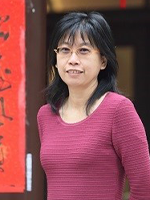 Nai-Ying Ko, PhD, RN, is the Director and Distinguished Professor at the Department of Nursing, College of Medicine, National Cheng Kung University. Dr Ko is recognized as an advocate for social justice and health equity and human right advocacy for minority populations in Asia. Dr Ko started the HIV counselling and testing programmes in Taiwan in the early 1990s, initiated HIV case management models in 2005 and published Taiwan’s oral pre-exposure prophylaxis clinical guideline in 2016, all of which became Taiwan’s national HIV policy. During the COVID-19 pandemic, Dr Ko has led an interdisciplinary team to develop innovated technology devices (HEARThermo) in the prevention of cluster infections.
Nai-Ying Ko, PhD, RN, is the Director and Distinguished Professor at the Department of Nursing, College of Medicine, National Cheng Kung University. Dr Ko is recognized as an advocate for social justice and health equity and human right advocacy for minority populations in Asia. Dr Ko started the HIV counselling and testing programmes in Taiwan in the early 1990s, initiated HIV case management models in 2005 and published Taiwan’s oral pre-exposure prophylaxis clinical guideline in 2016, all of which became Taiwan’s national HIV policy. During the COVID-19 pandemic, Dr Ko has led an interdisciplinary team to develop innovated technology devices (HEARThermo) in the prevention of cluster infections.
Sunil Solomon, USA
Johns Hopkins University
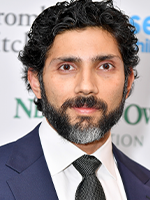 Sunil Suhas Solomon, MBBS, PhD, MPH, is an Associate Professor of Medicine and Epidemiology at the Johns Hopkins University School of Medicine, USA. He completed his medical training in India and received a Master’s in Public Health and a doctorate in epidemiology from the Johns Hopkins University. Dr Solomon has been elected into the Phi Beta Kappa and the Delta Omega honours societies and has received a Director’s Award from the NIH. His research is primarily focused on the epidemiology, clinical management and access to prevention and treatment services for HIV and viral hepatitis, especially among key populations globally.
Sunil Suhas Solomon, MBBS, PhD, MPH, is an Associate Professor of Medicine and Epidemiology at the Johns Hopkins University School of Medicine, USA. He completed his medical training in India and received a Master’s in Public Health and a doctorate in epidemiology from the Johns Hopkins University. Dr Solomon has been elected into the Phi Beta Kappa and the Delta Omega honours societies and has received a Director’s Award from the NIH. His research is primarily focused on the epidemiology, clinical management and access to prevention and treatment services for HIV and viral hepatitis, especially among key populations globally.
Teymur Noor, Sweden
European Centre for Disease Prevention and Control (ECDC)
 Teymur Noori is a psychologist and works at the European Centre for Disease Prevention and Control (ECDC) as an expert in monitoring and evaluation. He is primarily responsible for monitoring the HIV response in Europe and Central Asia, including monitoring the continuum of HIV care, and supporting efforts to monitor the response to viral hepatitis in the EU/EEA. He recently led efforts to develop a monitoring and evaluation framework for COVID-19 surveillance, preparedness and response indicators in the EU/EEA. Teymur also leads ECDC work on migrant health and infectious diseases. He recently led ECDC work to develop guidance on screening and vaccination of infectious diseases among newly arrived migrants in the EU/EEA, as well as guidance on infection prevention and control of COVID-19 in migrant and refugee reception centres in the EU/EEA.
Teymur Noori is a psychologist and works at the European Centre for Disease Prevention and Control (ECDC) as an expert in monitoring and evaluation. He is primarily responsible for monitoring the HIV response in Europe and Central Asia, including monitoring the continuum of HIV care, and supporting efforts to monitor the response to viral hepatitis in the EU/EEA. He recently led efforts to develop a monitoring and evaluation framework for COVID-19 surveillance, preparedness and response indicators in the EU/EEA. Teymur also leads ECDC work on migrant health and infectious diseases. He recently led ECDC work to develop guidance on screening and vaccination of infectious diseases among newly arrived migrants in the EU/EEA, as well as guidance on infection prevention and control of COVID-19 in migrant and refugee reception centres in the EU/EEA.
Elvin Geng, USA
Washington University
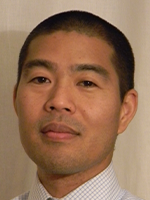 Dr Elvin Geng is an infectious disease physician who conducts epidemiological and implementation research to enhance the global public health response to HIV, in particular regarding engagement in HIV care. He directs the Center for Dissemination and Implementation in the Institute for Public Health at Washington University in St. Louis.
Dr Elvin Geng is an infectious disease physician who conducts epidemiological and implementation research to enhance the global public health response to HIV, in particular regarding engagement in HIV care. He directs the Center for Dissemination and Implementation in the Institute for Public Health at Washington University in St. Louis.
James Hargreaves, United Kingdom
London School of Hygiene and Tropical Medicine (LSHTM)
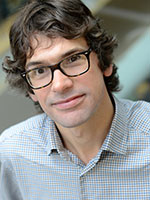 James Hargreaves is a Professor of Epidemiology and Evaluation, Director of the London School of Hygiene and Tropical Medicine Centre for Evaluation and Director of the international Measurement and Surveillance of HIV Epidemics (MeSH) consortium. His areas of research focus cover evaluation methodology (including impact and process evaluation design and mixed-methods research); HIV prevention (with a focus on behavioural and structural interventions); and HIV epidemiology (with a focus on routine and programme data, social determinants and HIV epidemic dynamics among high-risk populations). His research includes analyses of individual and cluster randomized trials, cross-sectional and cohort studies, systematic reviews and qualitative, policy and participatory research.
James Hargreaves is a Professor of Epidemiology and Evaluation, Director of the London School of Hygiene and Tropical Medicine Centre for Evaluation and Director of the international Measurement and Surveillance of HIV Epidemics (MeSH) consortium. His areas of research focus cover evaluation methodology (including impact and process evaluation design and mixed-methods research); HIV prevention (with a focus on behavioural and structural interventions); and HIV epidemiology (with a focus on routine and programme data, social determinants and HIV epidemic dynamics among high-risk populations). His research includes analyses of individual and cluster randomized trials, cross-sectional and cohort studies, systematic reviews and qualitative, policy and participatory research.
Joyce Wamoyi, Tanzania
National Institute for Medical Research
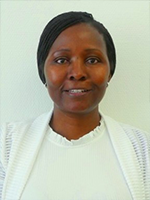 Dr Joyce Wamoyi is a social and behavioural researcher at the National Institute for Medical Research, Tanzania. She has an MSc in community health and a PhD in social and behavioural sciences. For over 19 years, Dr Wamoyi has worked on: adolescents and young people’s sexual and reproductive health (SRH) behaviour; structural drivers of SRH risk; HIV and AIDS prevention and treatment; parenting and families and child outcomes; stigma and discrimination in access to SRH services; and qualitative and participatory research methods. She has explored the dynamics of transactional sex in adolescents and young women’s sexual relationships in sub-Saharan Africa.
Dr Joyce Wamoyi is a social and behavioural researcher at the National Institute for Medical Research, Tanzania. She has an MSc in community health and a PhD in social and behavioural sciences. For over 19 years, Dr Wamoyi has worked on: adolescents and young people’s sexual and reproductive health (SRH) behaviour; structural drivers of SRH risk; HIV and AIDS prevention and treatment; parenting and families and child outcomes; stigma and discrimination in access to SRH services; and qualitative and participatory research methods. She has explored the dynamics of transactional sex in adolescents and young women’s sexual relationships in sub-Saharan Africa.
Martin Holt, Australia
University of New South Wales (UNSW)
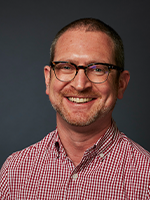 Professor Martin Holt conducts HIV prevention research with gay and bisexual men. A social scientist by training, he has worked at the Centre for Social Research in Health, UNSW Sydney, since 2003. Over the past 10 years, he has researched the impact of new forms of HIV prevention, particularly pre-exposure prophylaxis (PrEP) and treatment as prevention, on community norms, attitudes and practices, showing, for example, how PrEP uptake can disrupt existing practices, such as condom use. He has been a Deputy Editor of the Journal of the International AIDS Society since 2013. He is the author of over 130 peer-reviewed publications.
Professor Martin Holt conducts HIV prevention research with gay and bisexual men. A social scientist by training, he has worked at the Centre for Social Research in Health, UNSW Sydney, since 2003. Over the past 10 years, he has researched the impact of new forms of HIV prevention, particularly pre-exposure prophylaxis (PrEP) and treatment as prevention, on community norms, attitudes and practices, showing, for example, how PrEP uptake can disrupt existing practices, such as condom use. He has been a Deputy Editor of the Journal of the International AIDS Society since 2013. He is the author of over 130 peer-reviewed publications.
Mosa Moshabela, South Africa
University of KwaZulu-Natal
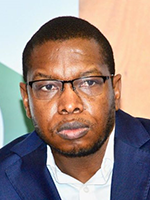 Professor Mosa Moshabela, MBChB, MMed, MSc, PhD, is Acting Deputy Vice-Chancellor for Research and Innovation at the University of KwaZulu-Natal and former Dean in the School of Nursing and Public Health. His research portfolio on implementation science and health systems research cuts across multiple disciplines, involves the design, implementation and evaluation of complex interventions in public healthcare services and programmes, and seeks to improve access, quality and equity in healthcare in ways appropriate for resource-poor settings in sub-Saharan Africa. He is currently the Chairperson of the Standing Committee on Health in the Academy of Science of South Africa (ASSAf).
Professor Mosa Moshabela, MBChB, MMed, MSc, PhD, is Acting Deputy Vice-Chancellor for Research and Innovation at the University of KwaZulu-Natal and former Dean in the School of Nursing and Public Health. His research portfolio on implementation science and health systems research cuts across multiple disciplines, involves the design, implementation and evaluation of complex interventions in public healthcare services and programmes, and seeks to improve access, quality and equity in healthcare in ways appropriate for resource-poor settings in sub-Saharan Africa. He is currently the Chairperson of the Standing Committee on Health in the Academy of Science of South Africa (ASSAf).
Rena Janamnuaysook, Thailand
Institute of HIV research and Innovation
 Rena Janamnuaysook works as a programme manager for transgender health at the Institute of HIV Research and Innovation (IHRI) in Bangkok, Thailand, where she established the Tangerine Clinic as the first transgender-led health clinic in the region. She manages and provides technical guidance for the development and implementation of HIV research and programmes for the transgender community. Rena is the programme fellow of the NIH CHIMERA D43 programme, which is part of the IeDEA network to conduct HIV and mental health implementation research. She has also worked as Project Management Specialist in HIV Key Population for the US Agency for International Development and was co-founder of the Thai Transgender Alliance, the first transgender-owned human rights organization in Thailand.
Rena Janamnuaysook works as a programme manager for transgender health at the Institute of HIV Research and Innovation (IHRI) in Bangkok, Thailand, where she established the Tangerine Clinic as the first transgender-led health clinic in the region. She manages and provides technical guidance for the development and implementation of HIV research and programmes for the transgender community. Rena is the programme fellow of the NIH CHIMERA D43 programme, which is part of the IeDEA network to conduct HIV and mental health implementation research. She has also worked as Project Management Specialist in HIV Key Population for the US Agency for International Development and was co-founder of the Thai Transgender Alliance, the first transgender-owned human rights organization in Thailand.
Rivet Amico, USA
University of Michigan
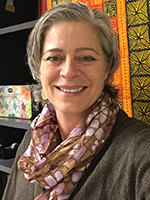 Dr Rivet Amico is an active contributor in the areas of HIV prevention and treatment, social-behavioural theory development, intervention implementation and evaluation and measurement. Her research focuses on practical work that can effectively advance the reach and quality of HIV care and prevention services available domestically and internationally. Dr Amico’s programme of research includes PrEP uptake and adherence, antiretroviral medication adherence, engagement in prevention and treatment services and research design in behavioural science. Dr Amico focuses on person-centred care in the creation, implementation and evaluation of programmes that prioritize dignity, rights and autonomy of the most impacted communities.
Dr Rivet Amico is an active contributor in the areas of HIV prevention and treatment, social-behavioural theory development, intervention implementation and evaluation and measurement. Her research focuses on practical work that can effectively advance the reach and quality of HIV care and prevention services available domestically and internationally. Dr Amico’s programme of research includes PrEP uptake and adherence, antiretroviral medication adherence, engagement in prevention and treatment services and research design in behavioural science. Dr Amico focuses on person-centred care in the creation, implementation and evaluation of programmes that prioritize dignity, rights and autonomy of the most impacted communities.
IAS 2021 International Co-Chair (IAS President)
Prof Adeeba Kamarulzaman of Malaysia became the first Asian President of IAS – the International AIDS Society – on 11 July 2020 when she began her two–year term. Prof Kamarulzaman is the Director of the Center of Excellence for Research in AIDS at the University of Malaya, which she set up in 2008. She also serves as an Adjunct Associate Professor at Yale University, USA, and chairs the Malaysian AIDS Foundation, a trust that raises funds for HIV- related programmes. As convener of the Malaysian Harm Reduction Working Group of the Malaysian AIDS Council, she successfully advocated for the implementation of harm reduction measures to tackle HIV among people who inject drugs in Malaysia. She was the President of the Malaysian AIDS Council from 2006 to 2010. In 2015, she was awarded an Honorary Doctor of Laws by her alma mater, Monash University, Australia, for her contributions to medicine and as a health advocate.
IAS 2021 Local Co-Chair
Professor Hendrik Streeck is the Director of the Institute of Virology and Professor of HIV Research at the University of Bonn, Germany. He completed his medical training in Berlin in 2006 and received his PhD from Friedrich-Wilhelm University in Bonn in 2007. After completing his postdoctoral fellowship at the Partners AIDS Research Center, he was Assistant Professor at the Ragon Institute of MGH, MIT and Harvard and assistant immunologist at the Massachusetts General Hospital. In 2012, he was recruited as the Chief of the Cellular Immunology Section of the U.S. Military HIV Research Program and adjunct Assistant Professor of Emerging Infectious Diseases at the Uniformed Services University of the Health Sciences. In March 2015, he took the chair of the Institute for HIV Research, but remains visiting scientist at the Military HIV Research Program on HIV vaccine and cure research. Currently, he leads the largest systematic study to understand the feasibility of conducting a Phase 3 HIV vaccine trial in Europe and to understand the epidemic of sexually transmitted infections. As a result of the study, the European HIV & STI prevention network was established in January 2019.
IAS President-Elect
Professor Sharon Lewin is the inaugural director of the Peter Doherty Institute for Infection and Immunity, a joint venture between the University of Melbourne, Australia, and Royal Melbourne Hospital. She is Professor of Infectious Diseases at the University of Melbourne, a consultant physician at the Alfred Hospital and a National Health and Medical Research Council (NHMRC) Practitioner Fellow in Melbourne. She is an infectious diseases physician and basic scientist. Her research focuses on understanding why HIV persists on treatment and developing clinical trials aimed at ultimately finding a cure for HIV infection. Professor Lewin is the Co-Chair of the Scientific Advisory Board for the Towards an HIV Cure Initiative led by IAS. She is also a member of the IAS Governing Council, representing the Asia Pacific region.
IAS Executive Director
With more than 20 years of public health and international development experience, Birgit Poniatowski was appointed to the position of IAS Executive Director in November 2020, following more than five years at the organization leading an expanding team responsible for resource mobilization, sustainable partnerships across diverse sectors and key strategic initiatives. Prior to joining the IAS, she was the Director for Investment and Partnerships at the Global Alliance for Improved Nutrition, and earlier managed partnerships and supported the organization’s multi-stakeholder governance processes at the Global Fund to Fight AIDS, Tuberculosis and Malaria. She was educated at Bonn and Heidelberg Universities in Germany and International Christian University in Tokyo, Japan. She holds a PhD from Heidelberg University.
IAS Regional Representative
Dr Cristina Mussini has been Professor of Infectious Diseases at the University of Modena and Reggio Emilia since 2011. She is also the Director of the Clinic of Infectious Diseases, Azienda Ospedaliero-Universitaria Policlinico, in Modena, Italy. She received her degree in medicine and surgery at the University of Modena in 1987 and completed a specialization in infectious diseases in 1990. Dr Mussini has published more than 200 papers on index journals for a total of above 900, H-index 55 (Google Scholar). From 2009 to 2016, she was a member of the National AIDS Committee of the Italian Ministry of Health. Since 2000, she has been a member of the Governing Board of the European AIDS Clinical Society (EACS). She is a member of the Scientific Committees for the EACS and Glasgow European Conferences and a member of the Scientific Committee of the Icona Cohort Study. She is Chair of the ESGIE, ESCMID study group for infections in the elderly. She has taught all over the world, including Turkey, Russia, Iran and Kenya. She organized the first EACS standard of care meeting in Rome to bring NGOs, political stakeholders and clinicians together to discuss HIV in Europe.
International Community Representative
Joe Wong is a transmasculine advocate and was born in Singapore. As the Executive Director of the Asia Pacific Transgender Network (APTN), he provides overall leadership and management. He was actively leading in the transgender HIV response well before he assumed his role at APTN in 2010. Joe was the driving force behind the Asia Pacific Trans Health Blueprint, a regional contextual map outlining key challenges, gaps and interventions for transgender people. He has written on and implemented best practices and continues to prove that there can be no real response to the advancement of trans sexual health and human rights without the presence, voices and contributions of transgender people.
Local/Regional Community Representative
Ricardo Fernandes has worked for several Portuguese NGOs in the field of HIV since 2000, mainly in project and services coordination. He has a degree in modern languages and literature from the University of Lisbon. He is the Executive Director of the Portuguese Group of Activists for HIV/AIDS Treatment (GAT) and is currently the Chair of the European AIDS Treatment Group (EATG). He is also a co-organizer of several Portuguese conferences and co-author of studies and articles mainly on stigma, diagnosis and late presentation for HIV care.